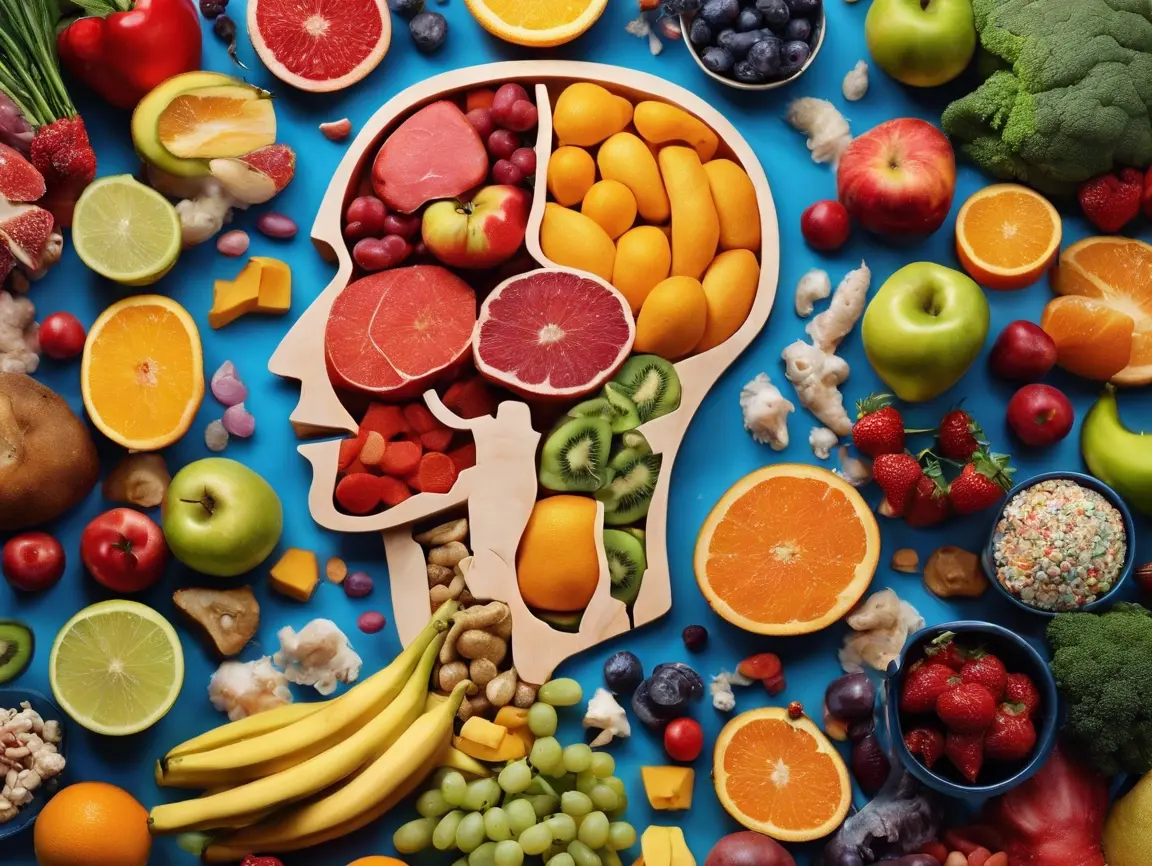The Role of Gut Health and ADHD
If you’re neurodivergent and living with ADHD, you know that the environment around you can make a huge difference in how well you focus. But what if I told you that your gut health could be impacting your ADHD symptoms? That’s right, gut health and ADHD are more connected than you might think. The gut-brain connection is real, and improving your gut health might be the missing piece of the puzzle when it comes to managing ADHD more effectively.
Gut health and ADHD are linked in ways that might surprise you. For many, focusing on the gut can make all the difference when trying to maintain better concentration and balance. So let’s dive into the science behind this connection and explore how improving gut health might help alleviate some of the common struggles associated with ADHD and other neurodivergent conditions.
What is the Gut-Brain Connection?
The gut-brain connection refers to the complex communication between the gut and the brain, which happens through the vagus nerve. Essentially, the state of your gut can influence your mood, cognition, and even your behaviour. For individuals with ADHD, this is important because research has shown that people with ADHD often have a different gut microbiome compared to those without the condition. The balance of bacteria in the gut can affect neurotransmitter production, which in turn impacts brain function, mood regulation, and focus.
Unlock peak brain performance with science-backed biohacks. Join free now & get your guide for just £4.99 (45% off)!

When your gut is healthy, it supports your brain’s ability to process information and regulate emotions, which is crucial for managing ADHD symptoms.
How Does Gut Health Affect ADHD Symptoms?
1. Impact on Focus and Attention
One of the core struggles for individuals with ADHD is maintaining focus. It turns out that gut health and ADHD go hand in hand when it comes to improving focus. The gut microbiome plays a role in producing neurotransmitters like serotonin, which is essential for mood regulation and focus. When the gut is out of balance, it can result in lower serotonin levels, contributing to difficulty concentrating and mood swings. By improving gut health, you can help support neurotransmitter production, which can enhance your ability to focus and stay on task. This is true not only for individuals with ADHD but also for those without neurodivergence, as gut health can influence focus and mood in everyone.
2. The Role of Inflammation in ADHD
Chronic inflammation has been linked to both ADHD and various gut health issues. Studies have shown that individuals with ADHD often have higher levels of inflammation in the body, which can interfere with cognitive function and emotional regulation. Improving gut health through a diet rich in anti-inflammatory foods can help reduce this inflammation, potentially making it easier to manage ADHD symptoms. Foods like fatty fish, leafy greens, and turmeric are known for their anti-inflammatory properties and can help support a healthier gut-brain axis.
3. Emotional Regulation and Stress
Gut health and ADHD are also connected when it comes to managing stress and emotional regulation. Individuals with ADHD often experience heightened emotional responses, including anxiety, irritability, and frustration. The gut microbiome can influence how the brain processes stress and emotions. By improving gut health, you can potentially reduce these emotional spikes, leading to a more balanced mood and better stress management. Probiotics, prebiotics, and fibre-rich foods have all been shown to support gut health, which in turn can enhance emotional regulation. Again, this isn’t just true for those with neurodivergence; improving gut health can benefit emotional regulation and stress management for everyone.
Gut Health Tips for Improving ADHD Symptoms
1. Probiotics and Fermented Foods
One of the best ways to support gut health is by incorporating probiotics into your diet. Probiotics are beneficial bacteria that can help balance your gut microbiome. Foods like yogurt, kefir, and fermented vegetables (such as kimchi and sauerkraut) are natural sources of probiotics. If you prefer supplements, look for a high-quality probiotic that contains multiple strains of bacteria for maximum benefit.
2. A Fibre-Rich Diet
Fibre plays an essential role in gut health by feeding the beneficial bacteria in your gut. A diet rich in fibre can help improve gut health and reduce inflammation. Try to include plenty of whole grains, vegetables, fruits, and legumes in your meals to support a healthy gut microbiome. This will also help to promote better focus and emotional regulation.
3. Reducing Sugar and Processed Foods
While we’re all tempted by sugary treats from time to time, too much sugar can negatively affect gut health and ADHD symptoms. A diet high in refined sugars and processed foods can disrupt the balance of bacteria in your gut. This can lead to inflammation and digestive issues. By reducing your intake of sugary and processed foods, you can support a healthier gut and, in turn, better manage your ADHD symptoms.
4. Omega-3 Fatty Acids
Omega-3 fatty acids are essential for brain health and have anti-inflammatory properties. These fatty acids can be found in fatty fish like salmon, walnuts, and flaxseeds. Incorporating omega-3-rich foods into your diet may not only support your overall brain function but also help manage ADHD symptoms by reducing inflammation and improving cognitive function.
The Gut Health and Neurodivergence Connection
Gut health isn’t just important for those with ADHD, it plays a role in various neurodivergent conditions, including autism and anxiety disorders. Research has shown that people with autism often have a less diverse gut microbiome, which can contribute to sensory processing issues, mood disturbances, and behavioural challenges. By improving gut health, individuals with autism might experience better regulation of sensory inputs, reduced anxiety, and enhanced emotional stability.
Similarly, anxiety is commonly comorbid with ADHD, and the gut-brain connection plays a pivotal role in how the body reacts to stress. For individuals dealing with both ADHD and anxiety, improving gut health may help regulate stress responses and emotional reactions, making it easier to navigate the challenges of daily life.
The Science Behind Gut Health and ADHD
The connection between gut health and ADHD is still a developing area of research, but growing evidence supports the idea that the gut-brain axis is an essential factor in ADHD management. One recent study published in Frontiers in Psychiatry found that individuals with ADHD have significant differences in their gut microbiomes compared to non-ADHD individuals. Researchers believe that improving gut health could potentially provide a complementary approach to managing ADHD symptoms. This goes alongside more traditional treatments like medication and behavioural therapy.
While the research is promising, it’s essential to note that gut health and ADHD are still being explored. It’s always a good idea to consult with a healthcare professional before making significant changes to your diet or supplement routine, especially when managing a condition like ADHD.
Conclusion
Are you ready to take the plunge into improving your gut health? Start with small, manageable changes to your diet and lifestyle. And as always, consult with your healthcare provider to ensure the best plan for you.
Gut health and ADHD are more intertwined than we previously realised. Improving gut health could provide a valuable support system for managing ADHD symptoms. From boosting focus and emotional regulation to reducing inflammation and supporting brain function. Taking care of your gut might be the key to feeling better and functioning at your best. Try incorporating gut-friendly foods like probiotics, fibre, and omega-3 fatty acids into your diet. You’ll be taking a holistic approach to managing ADHD, one that supports both your mind and body.
Join Our Community
Want more insights and a safe space to share your ADHD journey? Join our growing community at Herbal BioHacker. Together, we’ll navigate this adventure with a healthy dose of humour and plenty of support.







